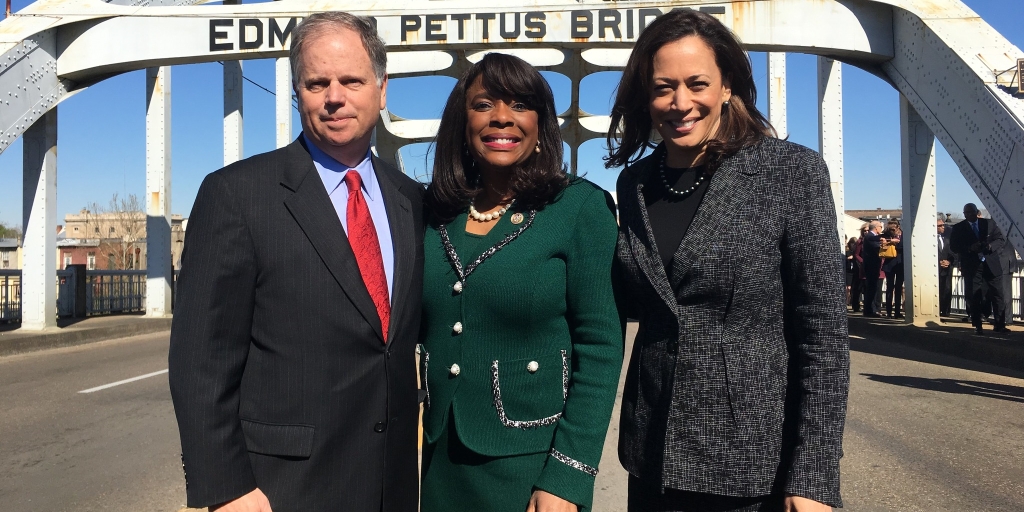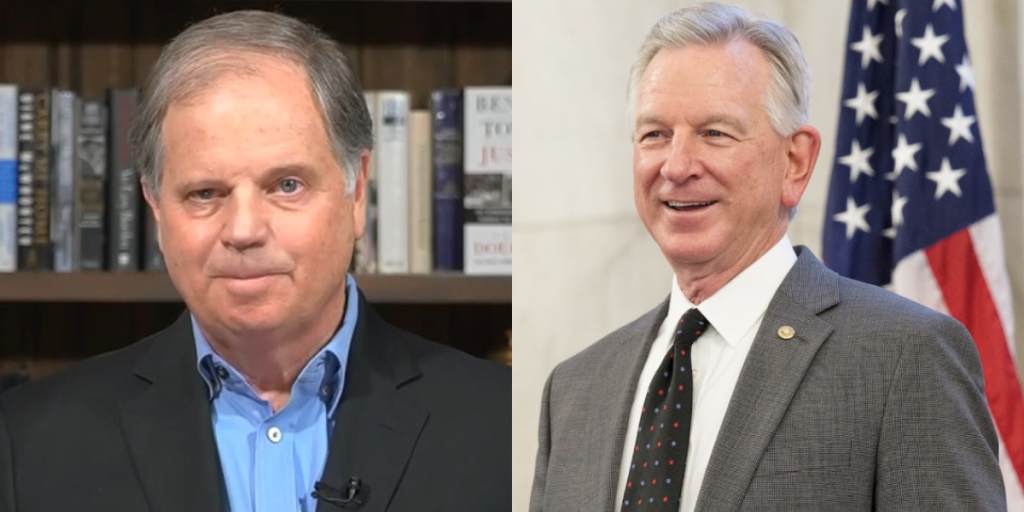A long-suffering minority party pulls off a major upset in a special election for the U.S. Senate, fueling hopes among partisans of major gains in the upcoming midterm elections.
Alabama and Doug Jones?
Try, Massachusetts and Scott Brown.
Like Democrat Jones in 2017, Republican Brown in 2010 stunned the political establishment by beating a candidate from the long-dominant political party.
Whatever hopes Republicans had that Brown’s victory signaled a partisan realignment in the Bay State quickly evaporated, however. Despite an extremely favorable political environment nationally for the GOP and an unpopular Democratic president, politics in Massachusetts snapped back to normal by the time the November election rolled around.
Although Republicans picked up 63 seats in the House of Representatives that year, the party went zero for 10 in Massachusetts. The Democratic governor, Deval Patrick, won re-election and the party actually gained a seat in the state Senate. (Republicans did pick up 17 seats to give them 32 in the 160-seat state House).
Brown, himself, lasted only until the next election — in 2012, when he lost to current Sen. Elizabeth Warren (D-Mass.).
Will it be any different for Alabama Democrats? Political experts are skeptical.
“Because of Doug Jones’ win, you don’t reclassify Alabama as a competitive state,” said Jess Brown, an emeritus political science professor at Athens State University in north Alabama. “Alabama is still crimson red.”
Eric Ostermeier, a political researcher at the University of Minnesota and founder of the Smart Politics blog, said parties even in one-side states occasionally can pull off upsets under the right circumstances. But they usually prove to be outliers, he added.
“In general, most of the states where one party is in power for a long time, there is a normal pullback,” he said.
Parallels between Alabama in 2018 and Massachusetts in 2010 abound. Before their special election breakthroughs, the party of power in both states had not cracked a Senate seat in a long time.
For Alabama, it had been since 1992, when Sen. Richard Shelby — now a Republican from Tuscaloosa — won re-election as a Democrat. In Massachusetts before Brown, it had been even longer since a Republican had won— 1972.
Both Brown and Jones faced opponents who, despite having won statewide office before, carried liabilities into their special elections.
Alabama Republican Senate candidate Roy Moore, of course, had a controversial career because of his strident stands on social conservatism and then found himself the target of late-breaking allegations that he had inappropriate sexual contact with teenage girls when he was a young prosecutor in the 1970s.
Jess Brown said it created a perfect storm for Jones that is not easily replicated.
“His victory was the product of simply a very weak candidate,” he said. “The Alabama Republican Party practically could have picked a name at random out of the phone book and he would have won.”
Democratic Massachusetts Attorney General Martha Coakley, meanwhile, did not have anywhere that level of baggage, but she generally was regarded as a lackluster campaigner who committed some high-profile gaffes on the campaign trail. She went on to later lose a gubernatorial election to Republican Charlie Baker.
Alabama Democrats are undeterred, however. Everywhere you turn, the party is bubbling with excitement. Large numbers of Democrats signed up to run for office, including in Republican strongholds where the party in past years has not even bothered to field candidates.
Democrats tell each other and the world that the victory in December by Jones has them believing they can win.
Democratic Party Chairwoman Nancy Worley stops short of predicting a Democratic sweep in November.
“But I think the chances are good at getting other Democrats to follow Doug Jones’ winning mode,” she said. “He certainly inspired a lot of excitement.”
Worley said the party’s “unprecedented success” at recruiting candidates is going to result in many tight races, even if the Democrats don’t win them all.
“Quite frankly, the records of a lot of Republican legislators are going to be looked at closely,” she said.
But in the first test of the Jones Effect, a Democratic candidate came up short last week in a special election for the state House of Representatives in a district that Jones won in December with 57 percent of the vote.
Worley depicted the glass as half full, noting that Republican Rex Reynolds was well-known as a former Huntsville police chief and city official. Yet, Worley noted, Democrat Terry Jones kept the race much closer than he did in 2014 when he ran against incumbent Republican Jim Patterson.
“He stands a very good chance of winning in the fall,” she said, noting that the two candidates will square off in a rematch in November.
Jones, himself, seems much more cautious about imputing excessive meaning in his victory.
“Not in a sense from flipping a state from red to blue,” Jones told FM 106.5 radio talk show host Sean Sullivan last week in Mobile. “I don’t think that that is going to happen, and frankly, I don’t think it should happen in that context. What I’m hoping to see out of our election is people are now starting to focus on issues rather than party.”
But Jones, the Athens State political science professor, said the Jones win has energized a party badly in need of new life. That attracts volunteers and candidates who can lay the groundwork for gains down the road, he said.
“You’ve got to keep people believing victory is possible. … That’s the way you continue to grow,” he said. “That’s what Republicans did to become competitive.”
Ostermeier, the University of Minnesota political scientist, noted that of the 16 special Senate elections held in off years across the country in the last 70 years, the party trying to defend the seat lost a majority of the contests.
In four of those races, the winning candidate’s party went on to electoral success in the following election — Democrat William Proxmire in Wisconsin in 1957; Republican John Tower in Texas in 1961; Republican Kay Bailey Hutchison in Texas in 1993; and Democrat Ron Wyden in Oregon in 1996.
All four saw their parties pick up congressional seats in the next election.
So, Ostermeier said, short-term success is possible.
“That’s sort of the best-case scenario you could paint,” he said.
@BrendanKKirby is a senior political reporter at LifeZette and author of “Wicked Mobile.”













